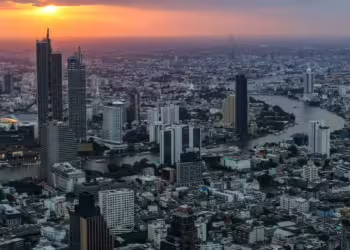No products in the basket.
The Asian financial crisis of 1997–98 led to calls for the reform of the international financial architecture. A large number of policies were proposed for crisis prevention and crisis resolution, but with the faster-than-expected recovery of the Asian countries, complacency set in and reforms were abandoned.
Complacency partially set the stage for the global economic crisis of 2008–09, and once again, under the auspices of the newly created G20, a large number of policies were announced. Have they been implemented, and has the world become a safer place? Not really.
This leads to three main reasons for concern. The first is complacency yet again. Five years ago, credit markets were frozen, international trade had fallen off the cliff and the global economy was headed towards a great depression similar to the one experienced in the 1930s.
There was an acute sense of urgency; the major economic powers agreed to coordinate monetary and fiscal policies. These efforts were successful and instead of a global depression the world experienced ‘the great recession’. Now financial markets no longer pose an immediate systemic threat. But the global economy is far from healthy; it is operating well below capacity, with millions unemployed.
Policy coordination is still required, but is difficult to obtain
While the G20 made substantial progress in global economic reforms during its first three summits — that is, until the Pittsburgh summit — it is now headed towards obsolescence. The second reason for lack of progress in global reforms is the reluctance of the United States to give up its veto power and control of the IMF. In 1944, the United States, as the global hegemon of the time, helped establish multilateral rules, including those for finance and the IMF.
This led to financial stability and unprecedented economic prosperity, not only for members of the club but also in other countries around the world — especially in the BRICS. Given their growing economic footprint in the world economy, the BRICS now desire a greater voice and say in running the IMF, but some members are reluctant to allow this.
This is because, like many other clubs, the IMF is designed in such a way that founding members ultimately maintain control. Hence, one of the centrepieces of the proposed global reforms, namely the G20 pledge to transfer 6 per cent of quota and voting power at the IMF to large emerging markets, cannot be implemented.
The third reason for limited progress in reforms is the relatively weak cohesion within the BRICS. The establishment of the G20 in the aftermath of the global economic crisis has given the BRICS a historically unprecedented opportunity to sit around the high table with G7 member states and participate in discussions on international economic policies as key stakeholders.
Pradumna B. Rana is Associate Professor in International Political Economy at the S. Rajaratnam School of International Studies (RSIS), Nanyang Technological University. Read the complete story in Five years after the global crisis, the world is no safer | East Asia Forum
Discover more from Thailand Business News
Subscribe to get the latest posts sent to your email.
Please login to join discussion















